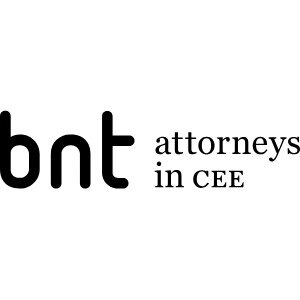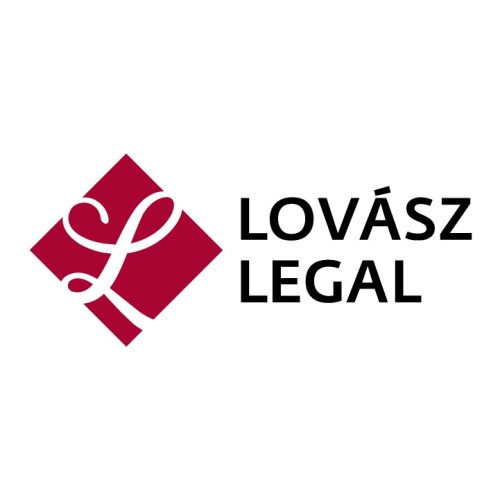Best Project Finance Lawyers in Slovakia
Share your needs with us, get contacted by law firms.
Free. Takes 2 min.
Or refine your search by selecting a city:
List of the best lawyers in Slovakia
About Project Finance Law in Slovakia
Project finance refers to the legal and financial process of funding large-scale infrastructure and industrial projects using the project's predicted future revenues as collateral. In Slovakia, project finance is essential for developing energy facilities, transportation systems, public infrastructure, and commercial real estate. The field combines several areas of law, including banking, construction, corporate, and public law. Slovakia's legal environment for project finance has developed considerably over the past decades, welcoming both local and foreign investment under a reliable legal framework supported by European Union directives.
Why You May Need a Lawyer
Project finance deals are often complex and involve multiple parties: banks, sponsors, government authorities, contractors, and often international investors. Legal advice is essential in situations such as:
- Structuring project finance agreements and negotiating their terms
- Understanding regulatory requirements for infrastructure or energy projects
- Preparing and reviewing contracts, such as EPC (Engineering, Procurement, and Construction) or O&M (Operation and Maintenance) agreements
- Conducting due diligence to identify legal risks
- Ensuring compliance with environmental regulations and permits
- Dealing with public-private partnership (PPP) structures or government approvals
- Facilitating cross-border transactions or foreign investment in Slovak projects
- Handling disputes between parties in the project
A lawyer experienced in project finance helps safeguard your interests, reduce risks, and increase the likelihood of a successful project completion.
Local Laws Overview
Project finance in Slovakia operates under a combination of national laws, EU legislation, and internationally accepted principles. Key aspects include:
- Securities and Collateral: Slovak law allows creation of security interests over various assets, which is essential for lenders to secure their exposure. This is governed by the Civil Code, Commercial Code, and related statutes.
- PPP Legislation: The Act on Public-Private Partnership governs arrangements where public and private sectors collaborate, common in project finance.
- Public Procurement: Projects involving public resources must follow public procurement rules, ensuring transparency and competition.
- Permits and Licensing: Infrastructure and energy projects require a range of permits from national and municipal authorities. Compliance with zoning, construction, environmental, and safety standards is mandatory.
- Foreign Investment: There are generally no restrictions on foreign participation, but specific sectors like energy or utilities may require special approvals.
- Tax Treaties and Incentives: Tax considerations are significant, with Slovakia offering investment incentives under certain conditions for major projects.
- Dispute Resolution: Parties may choose Slovak courts or arbitration for dispute resolution. The choice of law and forum is negotiable and crucial for international investors.
Frequently Asked Questions
What types of projects are typically financed through project finance structures in Slovakia?
Typical projects include energy plants (renewable and traditional), highways, bridges, water treatment facilities, telecommunications networks, and large real estate developments.
Can foreign investors participate in project finance deals in Slovakia?
Yes, Slovakia is open to foreign investment and there are robust legal provisions facilitating cross-border project finance deals. In some strategic sectors, additional approvals may be required.
What are the main sources of project finance in Slovakia?
Major sources include commercial banks, international financial institutions, export credit agencies, investment funds, and sometimes bond markets or syndicated loans.
How are risks allocated in project finance contracts?
Risks are typically allocated to the party best able to manage them. For example, construction risk may be borne by contractors, while market or offtake risk could remain with project sponsors or purchasers.
Are there any specific environmental laws that affect project finance?
Yes, all major projects must comply with Slovak and EU environmental regulations, including impact assessments, waste management, and emissions standards.
How long does it take to arrange a project finance deal in Slovakia?
The timeline varies with project size and complexity but typically ranges from several months to over a year, including permitting, contract negotiations, and financial close.
What types of security or collateral are common in project finance?
Common forms include mortgages on land and buildings, pledges over shares, accounts receivable, and project assets, as well as assignment of project contracts.
Is government support available for infrastructure projects?
Yes, the government may provide support through guarantees, PPP structures, or investment incentives, especially for projects with strategic importance.
What happens if the project fails or goes bankrupt?
If a project becomes insolvent, lenders can enforce security over project assets. Bankruptcy proceedings follow Slovak insolvency laws, with secured creditors given priority.
Do I need local legal representation if I am a foreign investor?
While not always mandatory, it is strongly recommended to engage a Slovak lawyer familiar with project finance to navigate local regulations, language barriers, and industry practices.
Additional Resources
If you are seeking further information or assistance regarding project finance in Slovakia, these resources may be useful:
- Ministry of Economy of the Slovak Republic - for investment incentives and sector regulations
- Slovak Chamber of Commerce and Industry - for business networking and support
- Slovak Banking Association - for information on financial institutions and lending standards
- Public Procurement Office - for public procurement regulations and guidance for PPPs
- Slovak Bar Association - for finding qualified legal professionals specializing in project finance
- Local offices of international development banks such as the European Bank for Reconstruction and Development (EBRD)
Next Steps
If you are planning or considering participation in a project finance venture in Slovakia, take these steps:
- Define your project objectives, structure, and key stakeholders.
- Engage an experienced Slovak project finance lawyer early for advice on structuring, due diligence, and regulatory compliance.
- Identify potential partners, financial institutions, or government contacts relevant to your sector.
- Prepare detailed project documentation, including contracts, permits, risk assessments, and financial models.
- Ensure compliance with all local and European Union laws, especially in regulated industries.
- Be prepared to negotiate with multiple stakeholders and address complex legal and financial questions.
Legal guidance is crucial at every stage of a project finance transaction. Consulting qualified professionals will help safeguard your interests and lead to successful project realization in Slovakia.
Lawzana helps you find the best lawyers and law firms in Slovakia through a curated and pre-screened list of qualified legal professionals. Our platform offers rankings and detailed profiles of attorneys and law firms, allowing you to compare based on practice areas, including Project Finance, experience, and client feedback.
Each profile includes a description of the firm's areas of practice, client reviews, team members and partners, year of establishment, spoken languages, office locations, contact information, social media presence, and any published articles or resources. Most firms on our platform speak English and are experienced in both local and international legal matters.
Get a quote from top-rated law firms in Slovakia — quickly, securely, and without unnecessary hassle.
Disclaimer:
The information provided on this page is for general informational purposes only and does not constitute legal advice. While we strive to ensure the accuracy and relevance of the content, legal information may change over time, and interpretations of the law can vary. You should always consult with a qualified legal professional for advice specific to your situation.
We disclaim all liability for actions taken or not taken based on the content of this page. If you believe any information is incorrect or outdated, please contact us, and we will review and update it where appropriate.
Browse project finance law firms by city in Slovakia
Refine your search by selecting a city.














